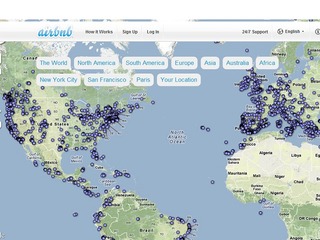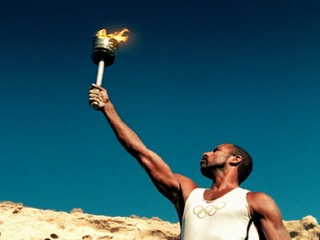The FDA outlines draft guidance on AI for medical devices
The agency also published draft guidance on the use of AI in drug development
Read more...
A family crowded around the television to watch the summer games has long-been the extent of social interaction tied to the Olympics, until now.
Now, people don't even have to be near a TV to get updates or even watch the historic games. This 2012 Olympics is lining up to the most socially followed and shared global event ever.
A new survey out on Friday found that 87% of people plan to use social media or mobile apps to talk with friends about Olympic events this summer.
Techbargains.com, a deal aggregator site for electronics, stated that roughly 53% of those surveyed said they’ll also be supporting teams and athletes via social media.
When you break it down by social media platform, 77% of people said they’ll be interacting on Facebook while watching the Olympics, 31% will be tweeting, 29% will be texting, 28% will be on YouTube, 20% on Google+ and just 6% will be on Pinterest as a part of their Olympics enjoyment.
And its not just the average viewer at home that wants to experience the games through the social media lens, athletes, press and attendees are using these services to keep in touch with their audience and friends back home.
Select athletes and teams are using NBC, BBC, Twitter and Facebook to acknowledge fan support, answer questions and give first-hand accounts of the events are like.
Because of the constant coverage and spectacle of the event, the TV is still the most popular (94%) platform where Americans will watch the Games, with about 9% going as far as to buy a TV just for the occasion.
“The 2012 Summer London Olympics are introducing the 3-D TV experience to sporting events, something that has yet to be done on such a large scale,” said Yung Trang, president and editor in chief of TechBargains.com, in the company press release.
Roughly half of people respondents of the survey even they would watch the Olympics in 3-D if they could.
Nearly half of survey respondents plan to watch the Games on a laptop, 39% on desktops, 31% on tablets and 27% plan to watch games on their smartphones.
With more than 140 million active users on Twitter and 955 million active users on Facebook, there will be a lot of discussion about the summer games and a great deal of content shared across the Web.
While some athletes have hundreds of thousands of followers and include updates and tweets about anticipation and training, others have already lead to very public backlashes and bans such as that of Australian swimmers Nick D'Arcy and Kenrick Monk. Both were slapped with a one-month social media ban by their country's delegation after they posted photos of themselves posing with guns while training in the United States.
While there are no major outlines on exactly how the athletes must behave on social networks, the IOC has implemented some rules, partly to protect official Olympic sponsors, telling the competitors not to promote non-official brands for one month.
Here are several athletes with an active online social media presence that you should be following during the games:

Facebook:

Twitter:
Natalie Coughlin @NatalieCoughlin
Rebecca Adlington @BeckAdlington
Matthew Mitcham @Matthew_Mitcham
Hope Solo @hopesolo
Usain Bolt @usainbolt
Adrien Niyonshunti @AD_Niyonshuti
Juan Mata @juanmata10
Paula Radcliffe @PaulajRadcliffe
Caroline Wozniacki @CaroWozniacki
Candace Parker @Candace_Parker
Manu Ginobili @ManuGinobili
Tom Daley @TomDaley1994
Veronica Campbell Brown @VCampbellBrown
Michael Phelps @MichaelPhelps
Ryan Lochte @RyanLochte
Lolo Jones @lolojones
Jordon Burroughs @AllISeeIsGold
Dominik Meichtry @SwissDom
Lebron James @KingJames
Stephanie Rice @ItsStephRice
The agency also published draft guidance on the use of AI in drug development
Read more...The biggest focus areas for AI investing are healthcare and biotech
Read more...It will complete and submit forms, and integrate with state benefit systems
Read more...




